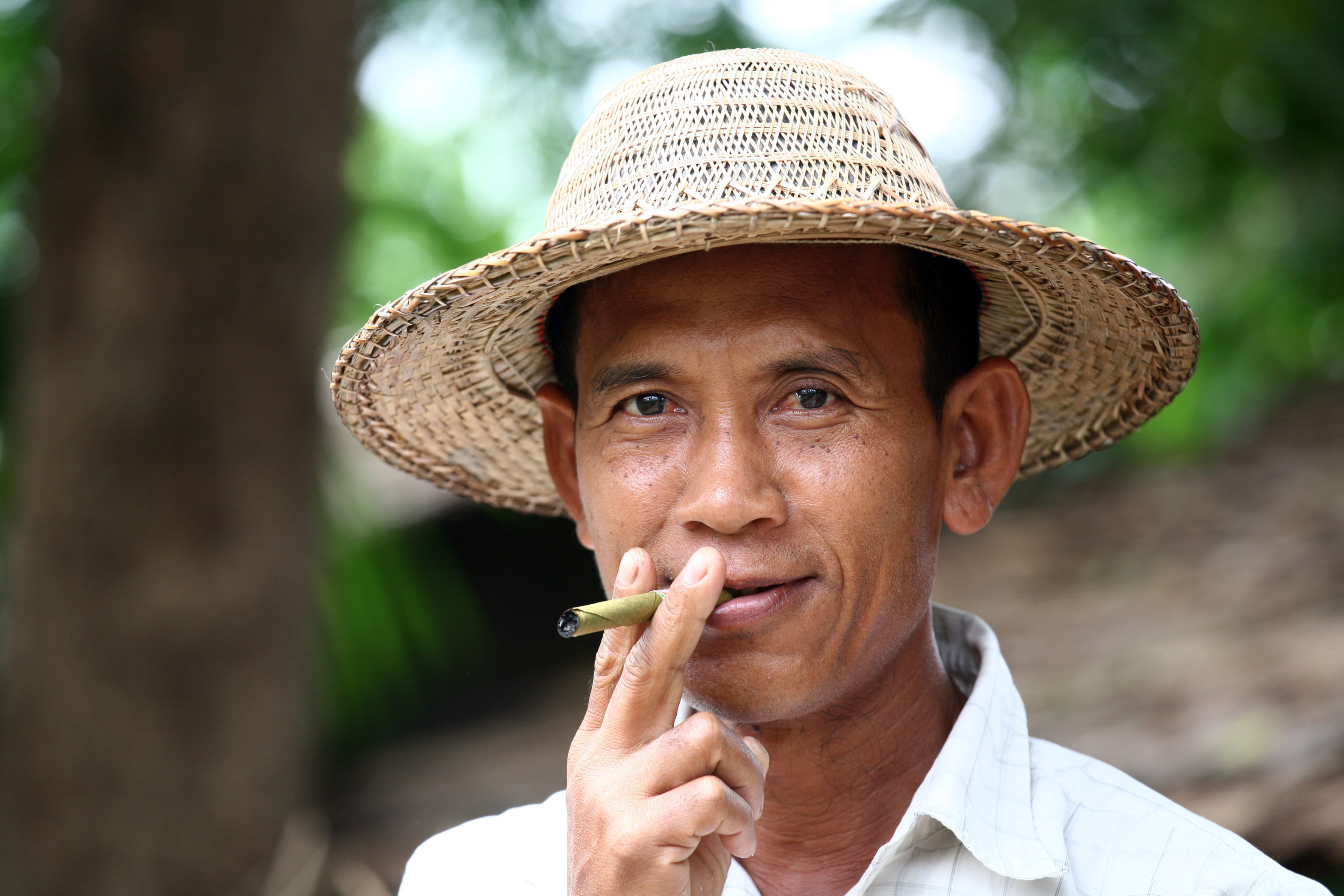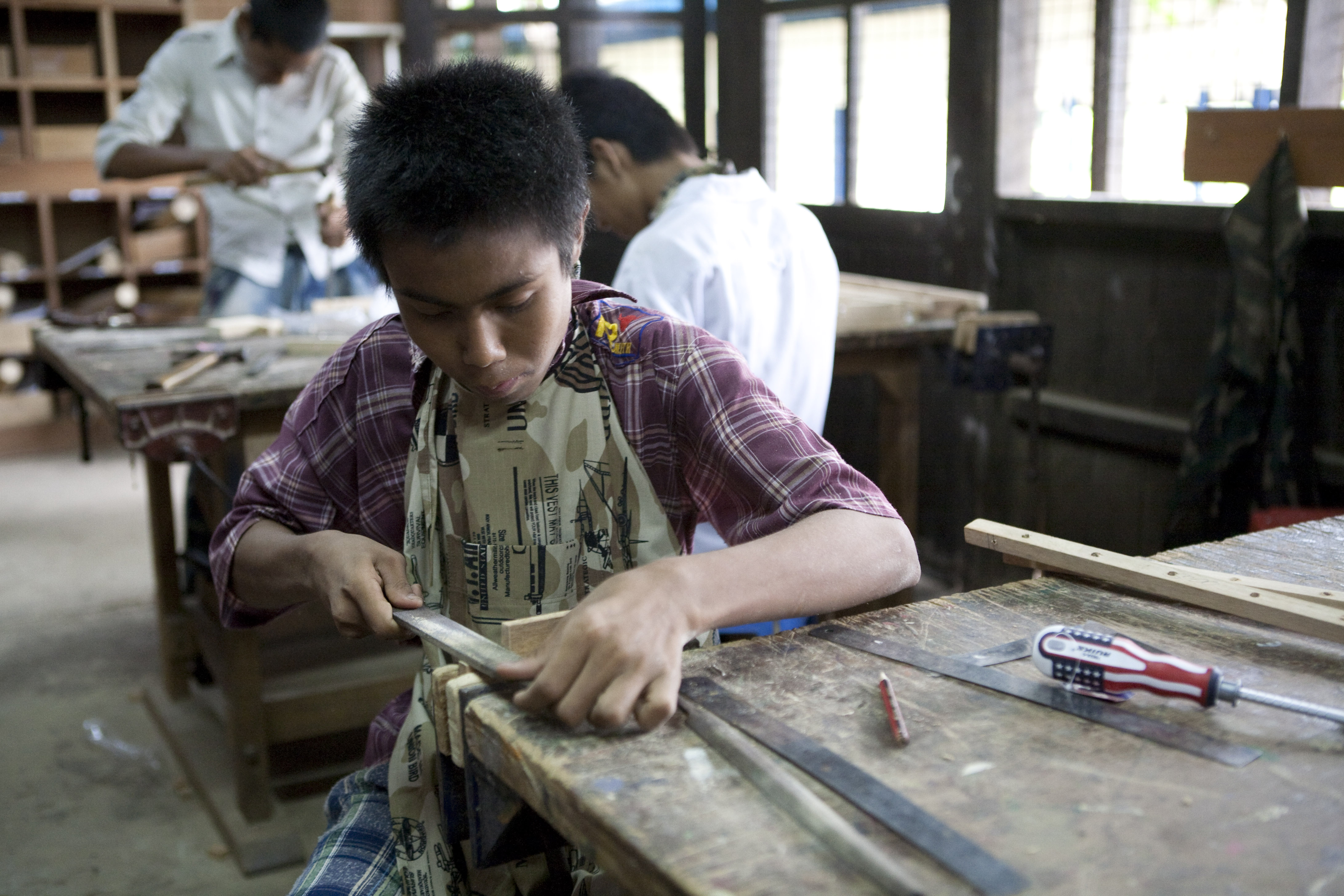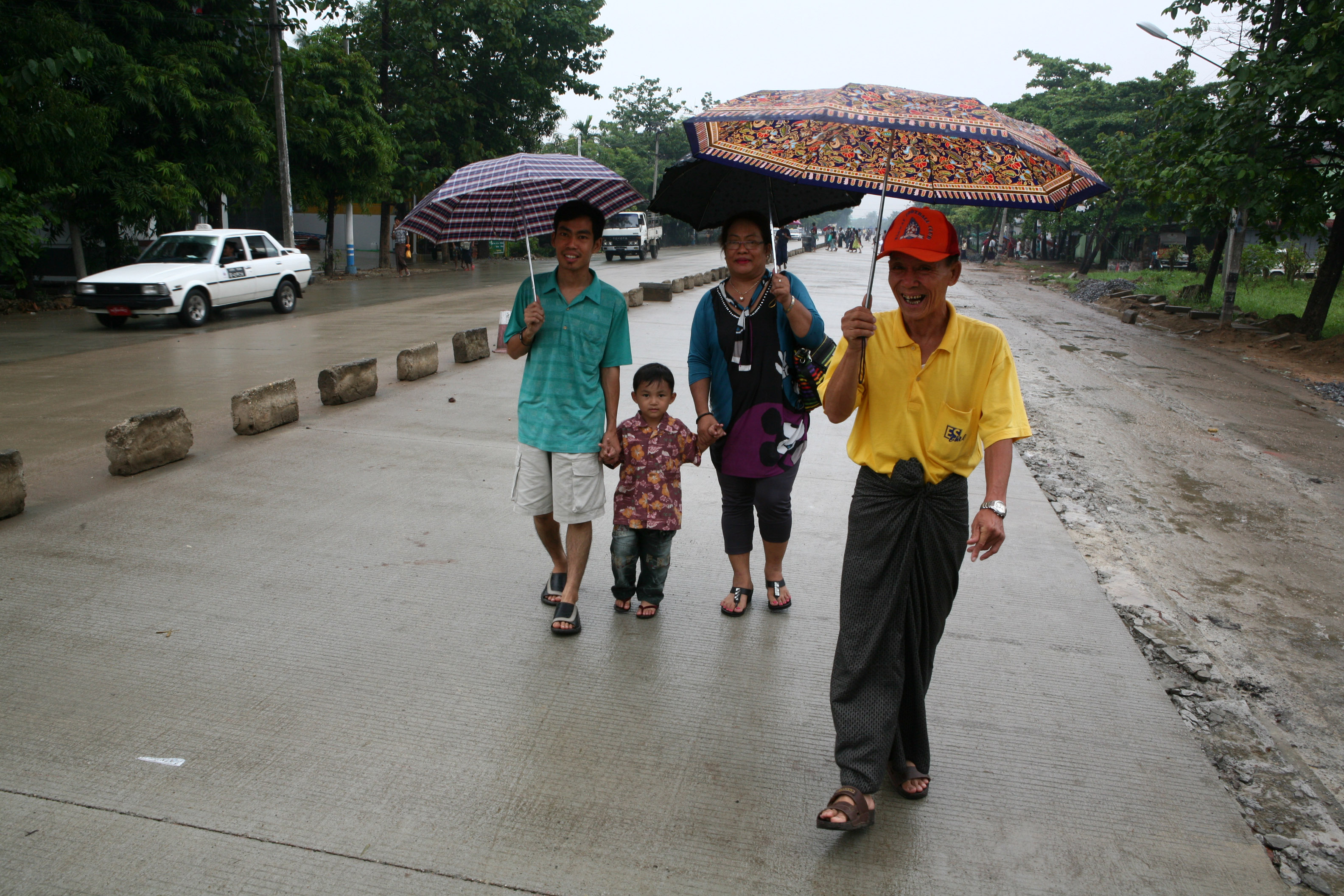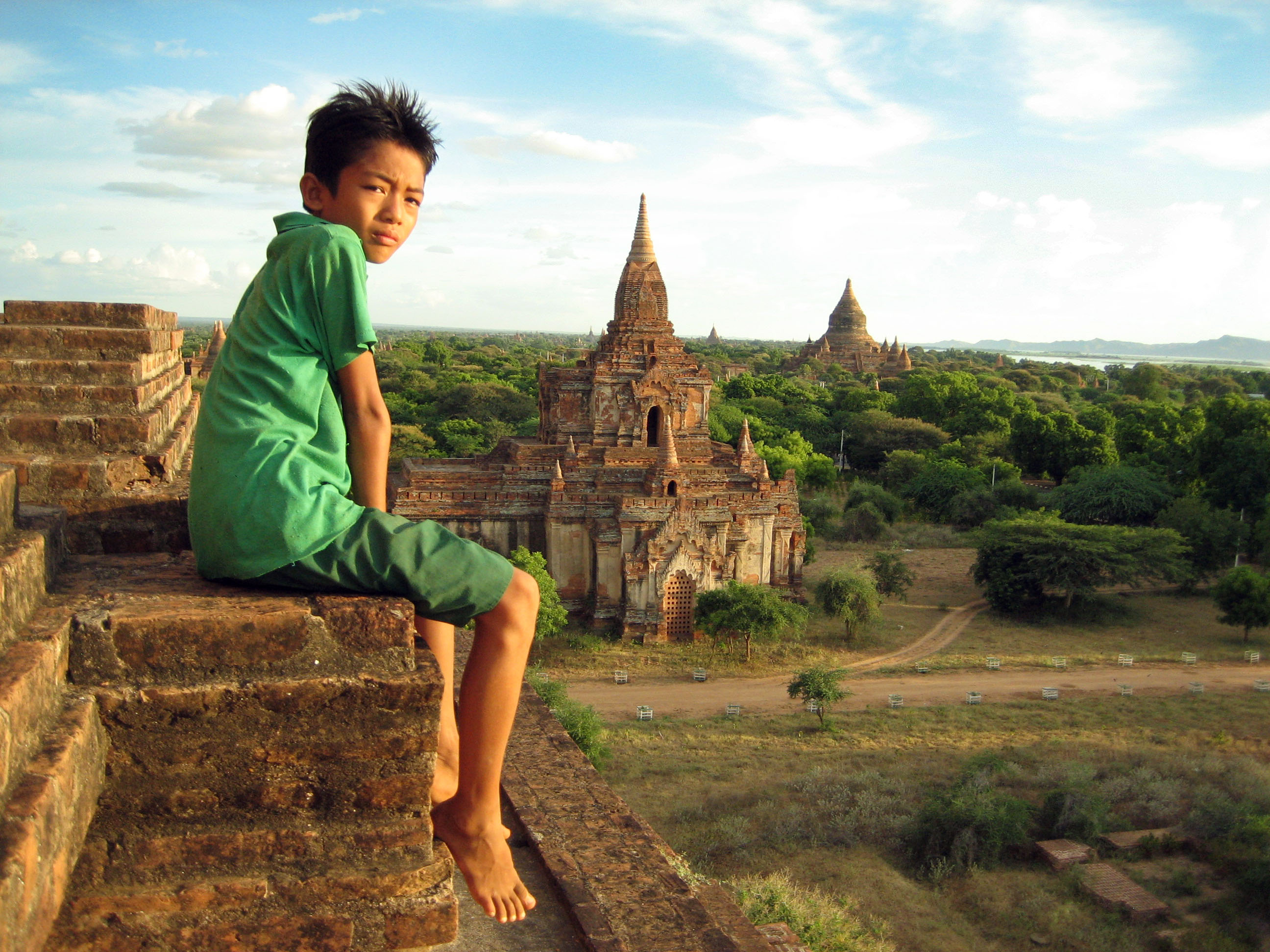Delivering aid in Myanmar’s “wild west”

With the visit of pro-democracy leader Aung San Suu Kyi to Switzerland, the Swiss government is stepping up its involvement in Myanmar. But uncertainties remain for aid agencies already on the ground.
Ask any local what’s the most obvious change of late and they’ll tell you: “The traffic.” The leap in the number of vehicles in recent months is a regular topic of conversation in Yangon. Packed buses and beat-up cars take up every inch of the newly upgraded streets of the Myanmar capital, driving even on the edges of the roads.
There is another novelty that bears eloquent witness to the changes going on. In the city centre, pictures of Aung San Suu Kyi – the “mother of the Myanmar people”, as she is called here – are everywhere, from giant placards hung at intersections to T-shirts and DVDs for sale on the sidewalks. In front of the opposition leader’s house, which was inaccessible not so long ago, busloads of visitors now jostle for a souvenir photo. The former enemy of the state has become a tourist attraction.
Less apparent, but just as much a sign of change, is the relaxed way in which people now talk about politics and the country’s problems. In the tea shops – the traditional meeting places – people gather around the little tables to discuss rising prices and workers’ wage demands. Popular discontent at the frequent electric power cuts and media censorship are featured on the front pages of the English-language newspapers.
“We are free,” exults an old friend on the outskirts of Yangon, offering his hospitality for the night. “Now we no longer need to report the visit of a foreigner to the local government office.”
Not regarded as spies
The increase in freedom is also noted by Swiss aid organisations on the ground. Apart from the Swiss Agency for Development and Cooperation (SDC), in Myanmar since 1998, there are a number of Swiss NGOs active in the country. Their work concerns agriculture, education, health, fighting poverty and supporting vulnerable population groups.
The local authorities are now more open to dialogue, notes Mar Mar Oo, a local employee of Caritas Switzerland. “They admit that there are problems and they accept help.”
It is now possible to talk openly about poverty, refugees and forced migration, adds the SDC’s coordinator of humanitarian aid for Southeast Asia, Thomas Fisler. “That was unthinkable up until a few months ago.”
“When the military government was in power, working with foreign groups was regarded with suspicion,” explains Kathy Shein, local director of the Swiss François-Xavier Bagnoud Foundation. “Today we are no longer regarded as spies and our work has become less risky.”
With democratic reforms going on in Myanmar, new opportunities are opening up for the international community and the NGOs active in the country, the development organisation Swissaid adds.
Supporting the government
Given the recent progress, Switzerland intends to strengthen its ties with Myanmar. Following the partial withdrawal of sanctions, Bern has announced the opening of a Swiss embassy there.
Next year, Switzerland will also intensify its involvement on the ground. The budget will grow from SFr7 million ($7.32 million) to around SFr25 million and the humanitarian projects – reconstruction in areas hit by cyclone Nargis, aid to displaced and most vulnerable persons – will be accompanied by new development programmes.
As part of its 2013-2016 global strategy, which is awaiting approval by the Swiss parliament, the SDC intends to be active in the areas of agriculture and food security, and vocational training. The Swiss agency also expects to be promoting involvement in civil society, in particular among ethnic minorities.
“We want to support the civilian government in its reforms. It is not our intention to create parallel systems, such as in the field of education,” explains the SDC’s Fisler.
He says investment in social infrastructure will be crucial. Aung San Suu Kyi herself, as Fisler notes, has declared that the country needs schools, health centres and an adequate water supply.
“Personally, I find the best thing you can see is a school full of children,” says Fisler, who at the same time recognises the importance of focusing on “capacity building” at the local level. “A new school is no use if it doesn’t have any qualified teachers.”
Meanwhile, Beat Nobs, head of the Asia and Pacific division of the foreign ministry, said in April that Switzerland could get involved in peace negotiations between ethnic groups and the government. Such dialogue has been called for by Myanmar President Thein Sein.
The priority, says the head of Swissaid, Caroline Morel, should be aid to the poorest population groups and reconciliation with ethnic minorities.
Dance of the dragon
Good intentions will not be enough, however, and caution is being called for. Myanmar continues to face chronic problems – bureaucracy, corruption, human rights violations and impunity of perpetrators – and reform is slow to come.
“It’s like the Chinese dance of the dragon: the head moves, but the tail stays put,” says Kathy Shein, of the François-Xavier Bagnoud Foundation.
Swiss NGOs agree that Myanmar can feel like the “wild west”.
As in the past, the rules can change without notice from one day to the next, aid workers say, so they have to take a very ad hoc approach.
“We operate up to a point where someone explicitly tells us to stop,” says Robert Millman, delegate of Terre des Hommes, a Swiss-based foundation that helps children reunite with their families if they have been separated.
For foreign staff, getting visas or permits for travel within the country is not at all easy. And to get to a Memorandum of Understanding with the government, they find themselves going through convoluted procedures which sometimes cancel each other out – so personal contacts are still decisive.
Institutional confusion is compounded by logistical problems. “We want to be more present in the ethnic regions, where the needs are most urgent. Access to Mon, Kayin and Kayah States is extremely difficult partly due to the absence of roads,” notes Fisler.
In the state of Kachin in the north of the country, the humanitarian situation for some local communities has become more difficult, Swissaid has found. With ongoing hostilities between the government army and ethnic armed groups, people have been displaced from their villages and some projects are up in the air for the time being.
Social tensions are likely to be accentuated by uncontrolled economic development, say humanitarian organisations. The onetime British colony, which is rich in minerals, precious stones, gas and water resources, has no governing standards for the protection of populations and the environment.
Local communities, not just foreign investors, should benefit from the political changes, Swissaid points out.
One third of Myanmar’s 50 million inhabitants belong to ethnic minorities, the main ones being Shan, Karen, Rakhine, Mon and Kachin.
These groups are found on two-thirds of the territory, often in regions rich in natural resources (minerals, timber, water, gas etc.).
Decades-long armed conflicts between the Myanmar army and ethnic militias, along with constant human rights violations, have forced entire populations to flee.
According to the most recent report of the Thailand Burma Border Consortium, internally displaced populations numbered 450,000 at the end of 2011. The most affected areas are Shan and Kayin (Karen) States.
Myanmar refugees abroad number over 400,000.
November 2010: first elections in 20 years; house arrest of Aung San Suu Kyi ends.
February 2011: Thein Sein becomes the first civilian president after half a century of military rule.
August 2011: the president calls on ethnic minorities to enter into peace talks.
October 2011 and January 2012: hundreds of political prisoners are freed.
April 2012: Aung San Suu Kyi is elected to parliament. Her party, the National League for Democracy, wins 43 of the 44 seats contested.
May 2012: Switzerland winds down some sanctions against Myanmar, following similar action by the European Union and others.
June 2012: Aung San Suu Kyi goes to Thailand for her first trip abroad in 24 years.
June 13-15, 2012: Switzerland is the first European country visited by the opposition leader.
(Translated from Italian by Terence MacNamee)

In compliance with the JTI standards
More: SWI swissinfo.ch certified by the Journalism Trust Initiative




You can find an overview of ongoing debates with our journalists here. Please join us!
If you want to start a conversation about a topic raised in this article or want to report factual errors, email us at english@swissinfo.ch.